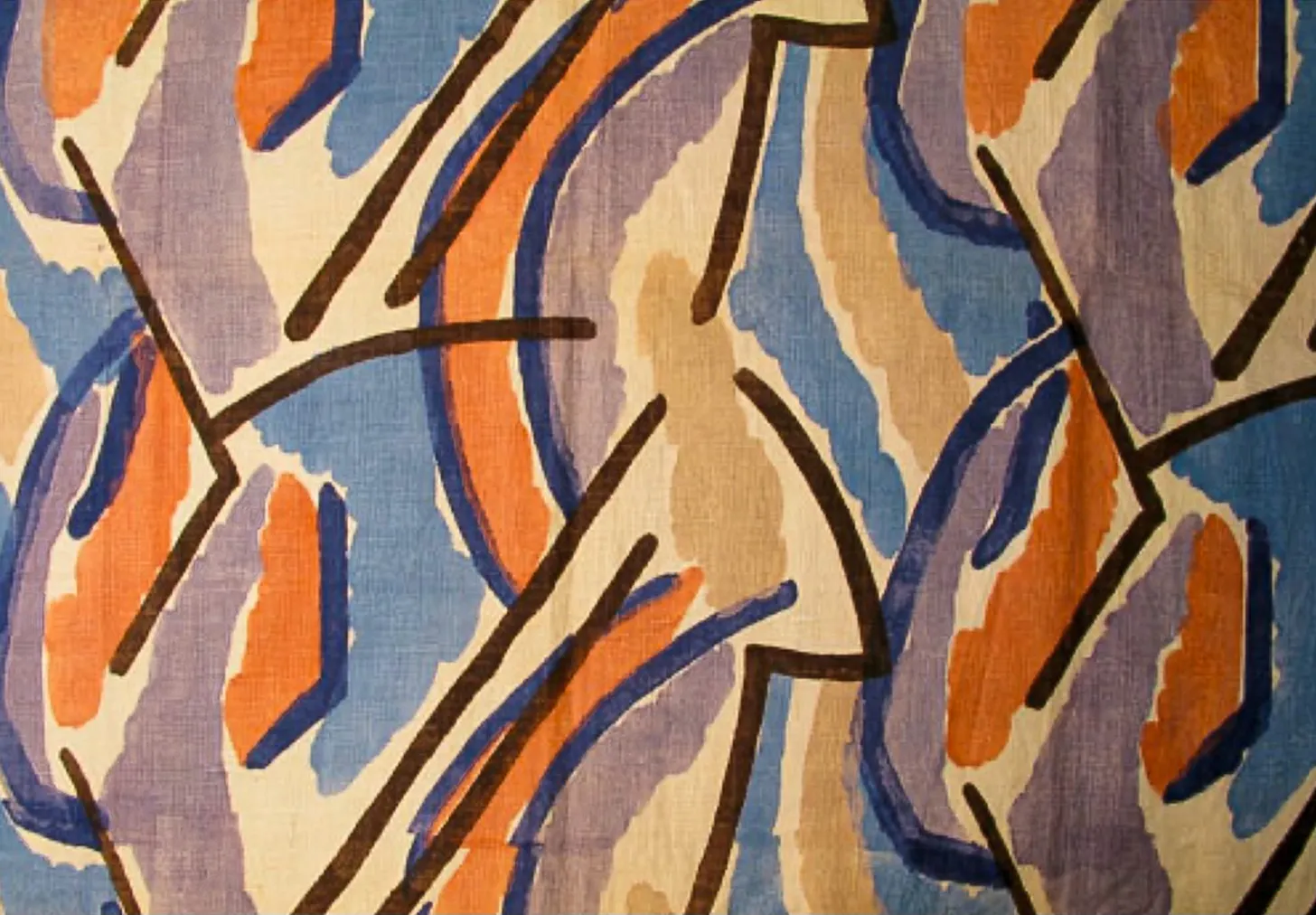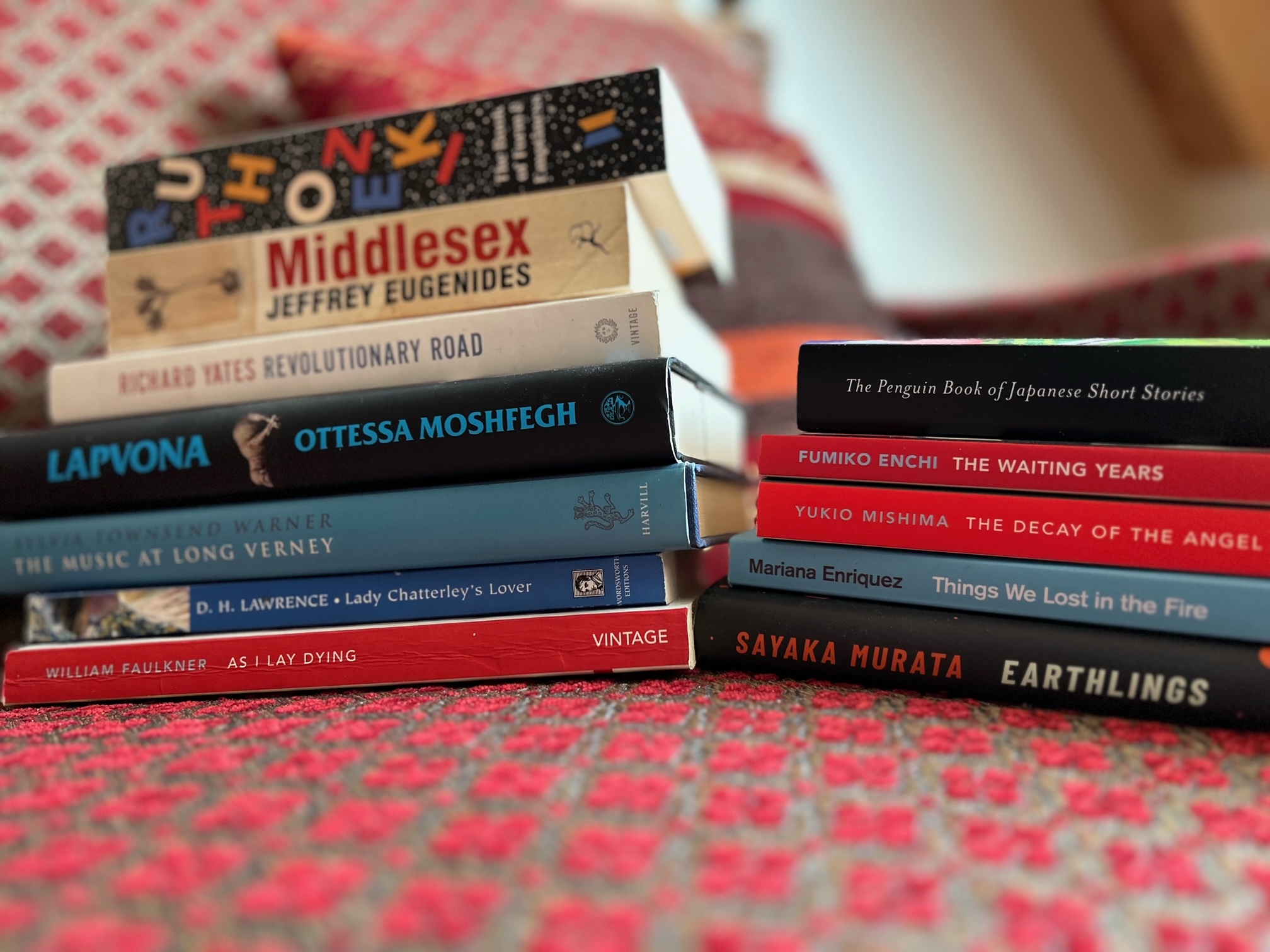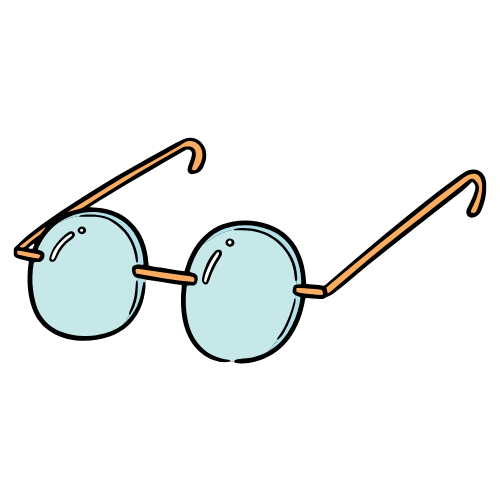I live on a continuous book-buying ban, which doesn’t really hold when traveling. I like buying second-hand books and I like buying books in the places I visit. For me, one advantage of picking up a book after it’s been lying months (years) on my TBR-shelf is that it instantly brings back to mind the day, the shop, the place I was visiting. It’s like I have an instant of an old me waiting to be picked up and read. Of course, the thing about things which lie half-forgotten on TBR-shelves is that they are bound to lose their brightness. Sometimes I end up looking at the cover wondering why I even wanted to read that. Other times I read some pages and see it might have fit the me I was when I bought it, but doesn’t really fit the current me.
In 2024, my reading resolution is to look at what has been piling up on my TBR-shelf, unexamined and forgotten, and see if I can still make any use of it. I chose 12 books in English, 12 in Romanian and 12 in German. 12 seemed like a good number. It can get fatter or thinner, depending on how circumstances change over the year. Planning is good, I think, but being spontaneous and knowing when to let go of things is even better.
20th century English-language modern classics
I own more than 12 physical books in English which have piled up over the last years, unread, but I decided to go with these 12. And as I was making my choice, I knew I wasn’t gonna be able to stick to it. No classics? No Virginia Woolf? I’ll love to see myself fail. But to make up for that, I selected William Faulkner’s As I Lay Dying (1930) and D.H. Lawrence’s Lady Chatterley’s Lover (1928). Both Faulkner and Lawrence are new for me and I’m really curious to see how they fit (or don’t fit) in the Modernist canon. A friend of mine told me she read Faulkner on vacation and wasn’t that hard. Can’t wait to see what I make of him.
I gained an interest in Sylvia Townsend Warner about two years ago while I was studying fairy tales, but only recently started reading one of her most famous works, Lolly Willowes (1926). Last year I asked some friends who went second-hand-bookstore-scavenging to see if they find something for me. And they found The Music at Long Verney, a collection of short stories spanning 1926-1977.
For years I’ve been waiting for the perfect moment to start reading Richard Yates’ Revolutionary Road (1962). I adore the movie with Leonardo di Caprio and Kate Winslet, and I imagine the book can only be better. What impressed me most about the story is how ordinary the life of the Wheelers is. Frank and April fall in love, get married, move to the suburbs and try to start a family. But they forget their dreams and life gets in the way. The story is chilling and heart-breakingly mundane.
English-language contemporary authors
I have Jeffrey Eugenides’ 2002 Pulitzer-prize winner Middlesex waiting for me the longest. I can barely remember where I got it from. It must have been the local charity shop because I don’t think I ever had a particularly strong wish to read it and I bought it just because it was there, and it was dirt cheap. I’m not even sure what it’s about and I’m pretty sure I wouldn’t buy it today anymore. Well, in the worst case I drop it and exchange it with a Bronte.
Things are quite different with Lapvona and The Book of Form and Emptiness. I adore Ottessa Moshfegh, even more so since I saw her at a book event in Munich, where she read from her 2015 Booker short-listed Eileen. Lapvona is her newest novel, released in 2022 and should be something really dark and disturbing. Can’t wait to get on with it! I read Ruth Ozeki’s 2013 novel, A Tale for the Time Being and I thought it was just masterful. Poetic postmodernism I described it in my head. So, when I saw her 2021 Women’s Prize for Fiction winner this year at Heathrow on a 3-for-2 offer I knew it’s now or never. Respectively now or later, but now is always better.
English-language translations
Over the last three years I’ve lost touch with one of the literatures of this world which I’m otherwise very fond of. Japanese literature. I started about 12 years ago with Haruki Murakami, and continued with Yukio Mishima, Yasunari Kawabata, Sayaka Murata and Yoko Ogawa. What most attracts me about Japanese authors is that they look at things from another point of view than European authors do. For Mishima, beauty equals death and for Murata society is disease. Such shocking ideas that they make me realize that Europe is just a variant, it’s not the final answer.
Short stories are always a good way to get to know new names and new styles of writing and this year I’m tackling this Penguin Book of Japanese Short Stories, which I picked up at Waterstones about 3 years ago. Reading short stories is how I got to know Fumiko Enchi. I read her in another collection of Japanese short fiction and knew I wanted more. I found The Waiting Years (1957) at Foyle’s right before Covid broke off, in 2020. Mishima’s The Decay of the Angel (1971) is the final installment of the tetralogy The Sea of Fertility, where two friends, Honda and Toru, live and are reborn in different ages and different circumstances. By Sayaka Murata I already read Convenience Store Woman and Life Ceremony. I bought her 2018 Earthlings online from the publisher because, yes, I would like to read more of her work, but also because it was advertised as being signed by the author. Which… the book has an insert of the author’s signature, photocopied.
If I consider Japanese literature to be one of my strong suits, can’t say the same about Spanish-language literature. Argentinian author Mariana Enriquez’s 2016 collection Things We Lost in the Fire seemed like a good opportunity to enrich my knowledge in this area, especially because her stories are supposed to be dark and macabre. Could be a good pairing with Moshfegh, the German-language original of Patrick Süskind’s Das Parfüm and the Romanian translation from the Polish of Olga Tokarczuk’s Drive Your Plow over the Bones of the Dead.
***
I think in the end that the beauty of reading doesn’t lie in a predetermined list, but in spontaneity, serendipity and keeping your eyes open for any opportunities which might arise. Sometimes the best reads are the ones which just fall into your lap. Other times, you are grateful to yourself for reading a long-awaited book at exactly the right time. Well, we will see. I want 2024 to be a year of renewal, change and dusting off old habits which might or might not be useful anymore. And looking back at what has been piling up on my bookshelf is my way to do that.
How about you? What’s your story for 2024?








your thoughts?